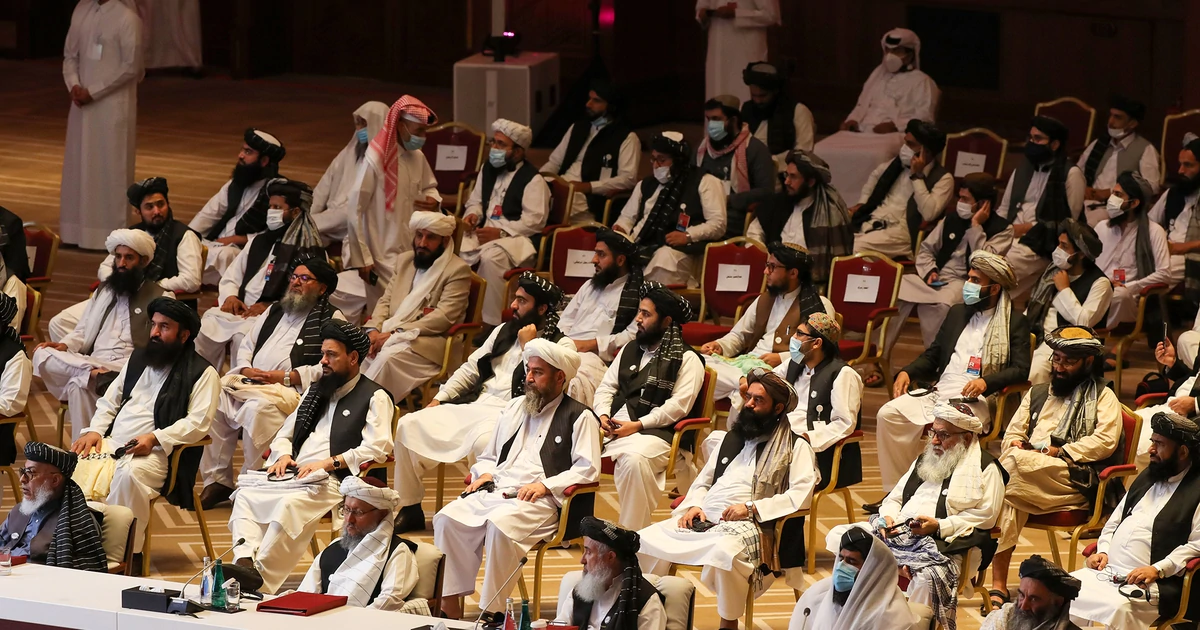
ISLAMABAD — The Afghan Taliban on Thursday welcomed a tweet from President Donald Trump in which he promised to have the last of U.S. troops out of Afghanistan by Christmas — or at least by the end of the year.
If that withdrawal happens, it would be months ahead of schedule and the tweet made no reference to a Taliban promise to fight terrorist groups — a previous pre-requisite for an American withdrawal.
In a tweet that seemed to contradicted his national security adviser, Trump said “we should have the small remaining number of our BRAVE Men and Women serving in Afghanistan home by Christmas.”
On Wednesday, National Security Adviser Robert O”Brien, speaking of American forces in Afghanistan, told an audience in Las Vegas that “as of today, there are under 5,000 and that will go to 2,500 by early next year.”
Yet when asked about his tweet, Trump told Fox Business Channel: “We’re down to 4,000 troops in Afghanistan. I’ll have them home by the end of the year. They’re coming home, you know, as we speak. Nineteen years is enough. They’re acting as policemen, OK? They’re not acting as troops.”
America’s exit from Afghanistan after 19 years was laid out in an agreement Washington reached with the Taliban in February. However, that agreement said U.S. troops would be out of Afghanistan in 18 months, provided the Taliban honored a commitment to fight terrorist groups, with most attention seemingly focused on the Islamic State group’s affiliate in the country.
/cloudfront-us-east-1.images.arcpublishing.com/mco/4FN7ACZY6ZEILNUIB6HLYFJBN4.jpg)
Taliban spokesman Zabihullah Mujahed said Trump’s statement was welcome and he considered it a positive step for the implementation of the peace agreement between the U.S. and the Taliban.
The Taliban are “committed to the contents of the agreement and hope for good and positive relations with all countries, including the U.S, in the future,” he said.
Trump’s surprise tweet late Wednesday came as the Taliban and the Afghan government-appointed negotiating team are holding historic peace talks in Doha, Qatar.
Those talks have been painfully slow as both sides have become bogged down on the intricacies of how they would go forward with reaching an agreement. Weeks have been spent discussing Islamic jurisprudence and how it will impact negotiations.
/cloudfront-us-east-1.images.arcpublishing.com/mco/TBESC3CXLFDCDKP2HTPOPFSN5Q.jpg)
Still, both sides have stayed at the negotiating table even as Washington’s peace envoy Zalmay Khalilzad last week returned to the region. Little information of substance has emerged from the talks.
On Thursday, Khalilzad was in Pakistan with Gen. Austin Miller, commander of U.S. forces in Afghanistan, meeting with Pakistan’s Army Chief of Staff Gen. Qamar Jaaved Bajwa. Pakistan has helped shepherd the Taliban to the negotiating table and its role is seen as critical for lasting peace in Afghanistan.
There was no immediate information about the purpose of Thursday’s meeting but Khalilzad has been keen to get both sides — particularly the Taliban — to sign on to a reduction in violence at least while the Qatar negotiations are underway and until a permanent cease-fire can be negotiated.
It’s likely Miller and Khalilzad were seeking the help of Pakistan’s powerful military to press the Taliban, who have insisted on fighting Afghan security forces even as talks are taking place — though the insurgents have kept a promise from February not to attack U.S. and NATO troops.
/cloudfront-us-east-1.images.arcpublishing.com/mco/L7XR4GXKT5A2NABCKSLCC5H4SI.jpg)
The Taliban have never detailed the commitments they made in the February peace agreement with the U.S. to fight terrorists and Washington has refused to give details, citing security concerns.
Even as the warring sides meet in Doha to map out what a post-conflict Afghanistan might look like, Washington and NATO have already begun reducing their troop numbers. Washington is now down to under 5,000 troops from an estimated 13,000 when it signed the agreement with the Taliban on Feb. 29.
Trump’s comments caught most Afghan observers by surprise and the Afghan government did not immediately respond to to the tweet.
/cloudfront-us-east-1.images.arcpublishing.com/mco/3XEDX46Y4FC2BEA4FD5PB3GTOU.jpg)
Expect US election to have consequences for American troops overseas
President Donald Trump and Democratic rival Joe Biden both say they want to pull U.S. forces out of Iraq and Afghanistan. But their approaches differ, and the outcome of the Nov. 3 election will have long-term consequences not only for U.S. troops, but for the wider region.
This is not the first time Trump has undercut the Pentagon with announcements about troop strength in Afghanistan. He previously has publicly announced American troop strength without vetting by the Pentagon, which has not yet responded to Trump’s tweet.
Trump has long promised to end U.S. involvement in Afghanistan and the agreement with the Taliban does not require the two Afghan sides reach a deal before Washington withdraws.
Associated Press writer Deb Riechmann in Washington contributed to this report.


Be the first to comment